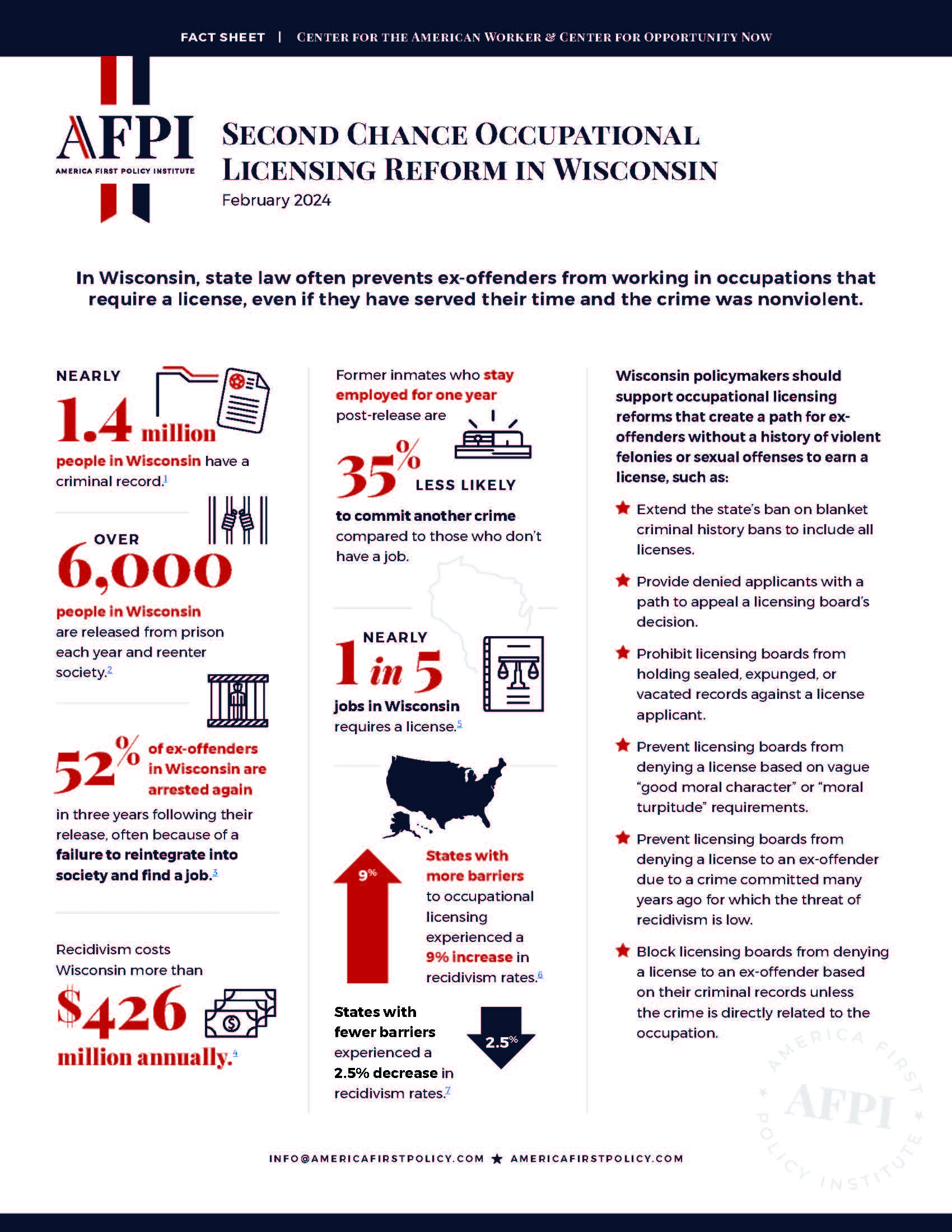Second Chance Occupational Licensing Reform in Wisconsin
In Wisconsin, state law often prevents ex-offenders from working in occupations that require a license, even if they have served their time and the crime was nonviolent.
Nearly 1.4 million Wisconsin have a criminal record.
Over 6,000 people in Wisconsin are released from prison each year and reenter society.
52% of ex-offenders in Wisconsin are arrested again in three years following their release, often because of a failure to reintegrate into society and find a job.
Recidivism costs Wisconsin more than $426 million annually.
Former inmates who stay employed for one year post-release are 35% less likely to commit another crime compared to those who don't have a job.
Nearly 1 in 5 jobs in Wisconsin requires a license.
States with more barriers to occupational licensing experienced a 9% increase in recidivism rates.
States with fewer barriers experienced a 2.5% decrease in recidivism rates.
Wisconsin policymakers should support occupational licensing reforms that create a path for ex-offenders without a history of violent felonies or sexual offenses to earn a license, such as:
- Extend the state’s ban on blanket criminal history bans to include all licenses.
- Provide denied applicants with a path to appeal a licensing board’s decision.
- Prohibit licensing boards from holding sealed, expunged, or vacated records against a license applicant.
- Prevent licensing boards from denying a license based on vague “good moral character” or “moral turpitude” requirements.
- Prevent licensing boards from denying a license to an ex-offender due to a crime committed many years ago for which the threat of recidivism is low.
- Block licensing boards from denying a license to an ex-offender based on their criminal records unless the crime is directly related to the occupation.
